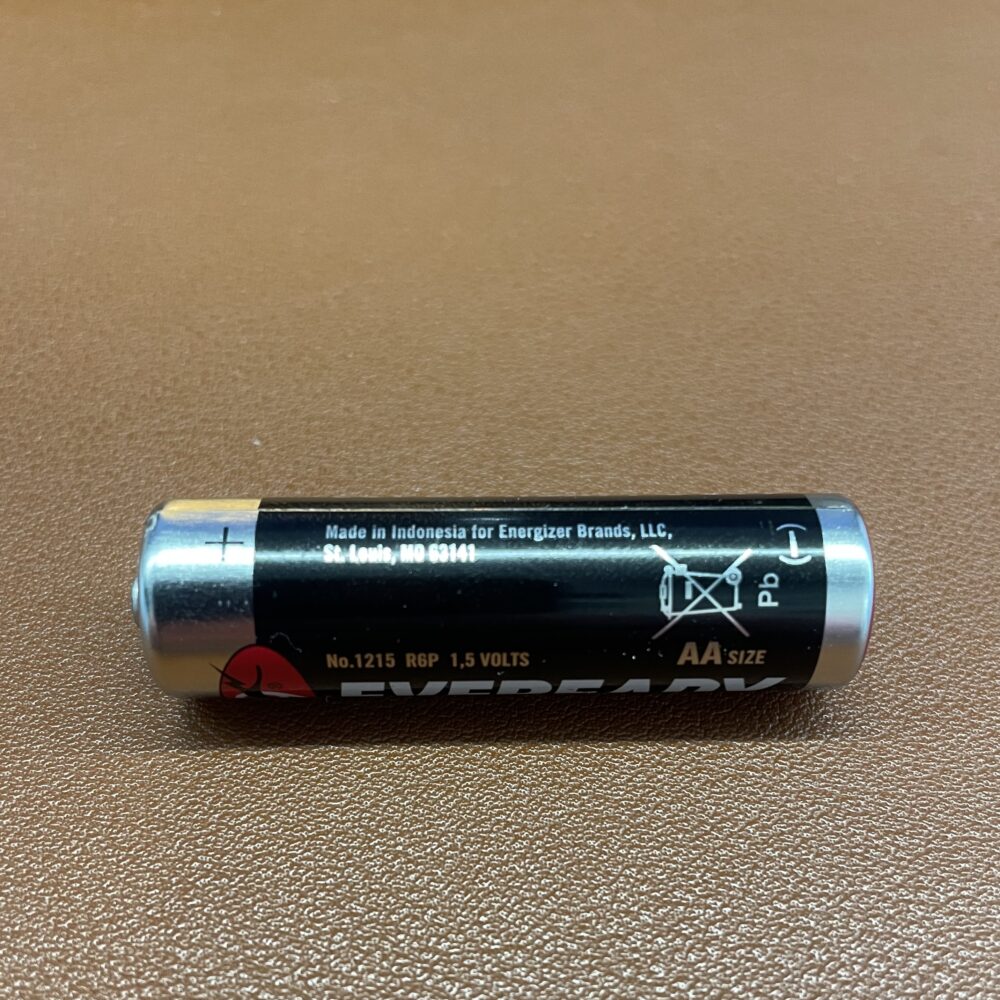The hazards of changing a battery

Yesterday, I changed the battery in one of the office clocks. I am the person in the office with the lowest tolerance for stopped clocks, so this job often falls to me.
When I removed the AA battery, I was surprised by how light it was. On further inspection, it turns out that it’s a carbon-zinc battery. I don’t recall seeing one of those before. The displayed manufacturing date is February 2004, so someone must have found it in the back of a cupboard: I’m not sure my current employer bought it!
Wikipedia tells me that ‘zinc-carbon batteries today have been mostly replaced by the more efficient and safe alkaline batteries’, which raised some questions. ‘Alkaline batteries offer up to eight times the battery life of zinc-carbon batteries’: so why not use them in the bloody clocks and save me up to seven jobs?
Anyway, I found the brand’s website. I perused the ‘frequently asked questions’ section. In response to ‘How should I dispose of carbon zinc batteries?’, they offer ‘It’s safe to drop them right in the household trash.’
The battery has the crossed-out wheelie-bin symbol right there on it. Batteries shouldn’t be dropped into the household trash. Not only is there a high risk of causing fires, but, in many places, they’re classified as hazardous waste.
So next time you’re browsing the battery aisle and wondering whether to choose an Eveready / Energizer product, remember that they choose to encourage their customers to dispose of products irresponsibly. Consider whether that’s an approach which really has your best interests at heart. Then, make whatever choice you feel comfortable with.
This post was filed under: Miscellaneous.